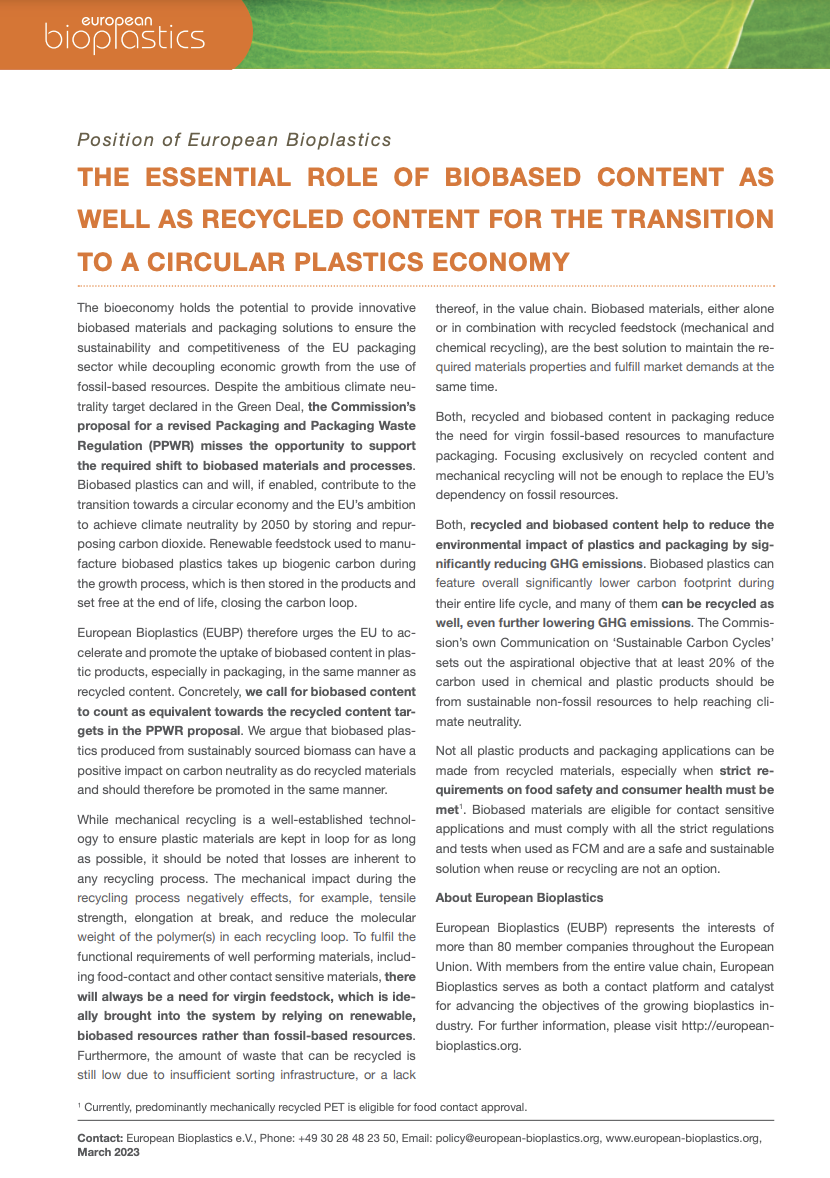The bioeconomy holds the potential to provide innovative biobased materials and packaging solutions to ensure the sustainability and competitiveness of the EU packaging sector while decoupling economic growth from the use of fossil-based resources. Despite the ambitious climate neutrality target declared in the Green Deal, the Commission’s proposal for a revised Packaging and Packaging Waste Regulation (PPWR) misses the opportunity to support the required shift to biobased materials and processes. Biobased plastics can and will, if enabled, contribute to the transition towards a circular economy and the EU’s ambition to achieve climate neutrality by 2050 by storing and repurposing carbon dioxide. Renewable feedstock used to manufacture biobased plastics takes up biogenic carbon during the growth process, which is then stored in the products and set free at the end of life, closing the carbon loop.
European Bioplastics (EUBP) therefore urges the EU to accelerate and promote the uptake of biobased content in plastic products, especially in packaging, in the same manner as recycled content. Concretely, we call for biobased content to count as equivalent towards the recycled content targets in the PPWR proposal. We argue that biobased plastics produced from sustainably sourced biomass can have a positive impact on carbon neutrality as do recycled materials and should therefore be promoted in the same manner.
